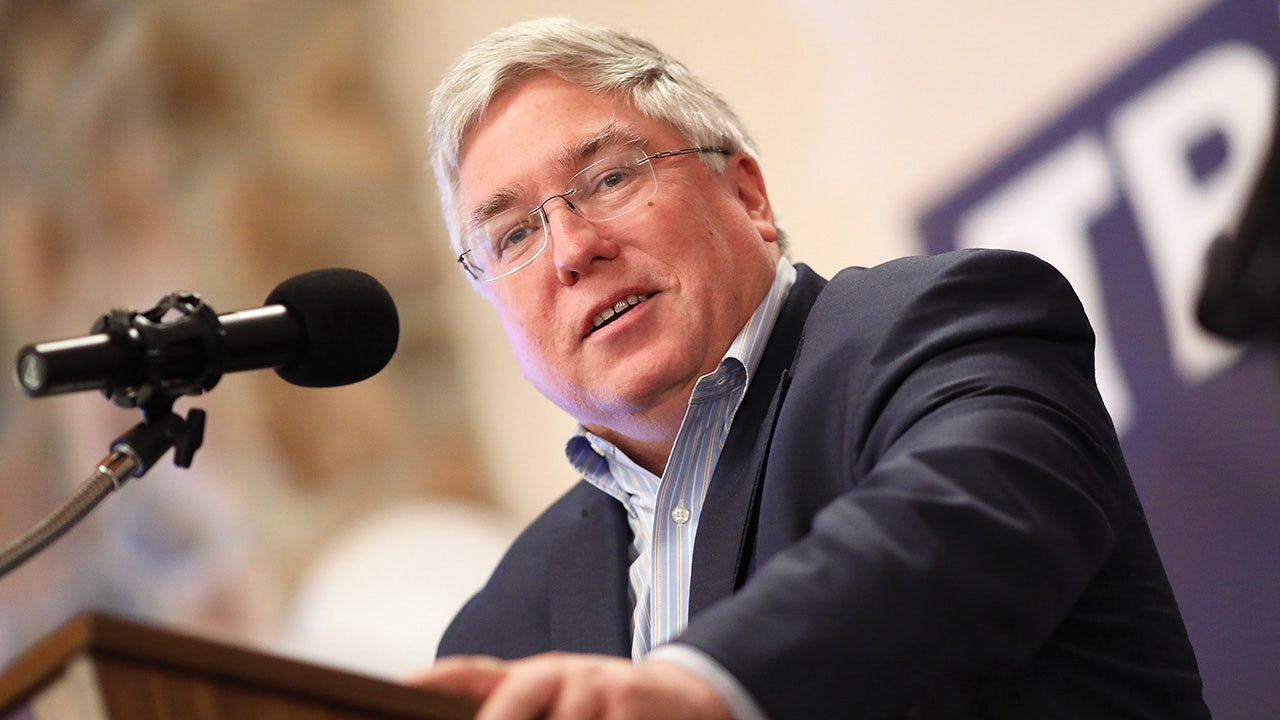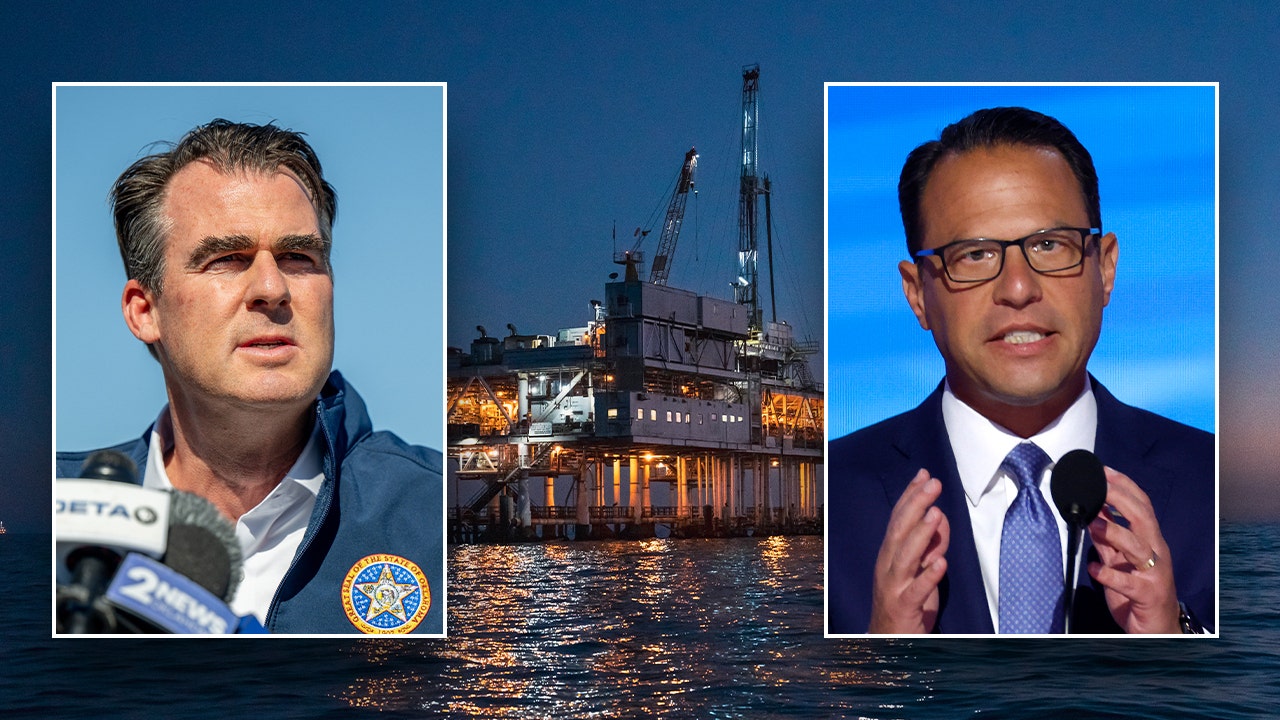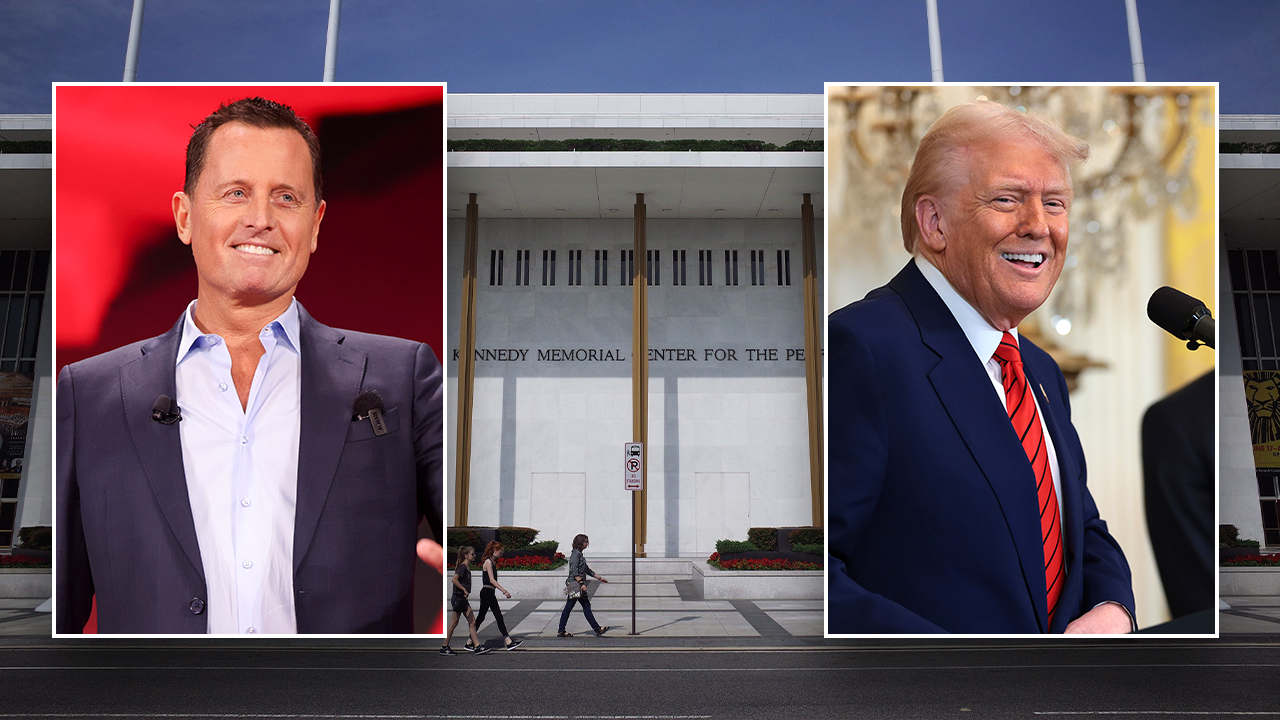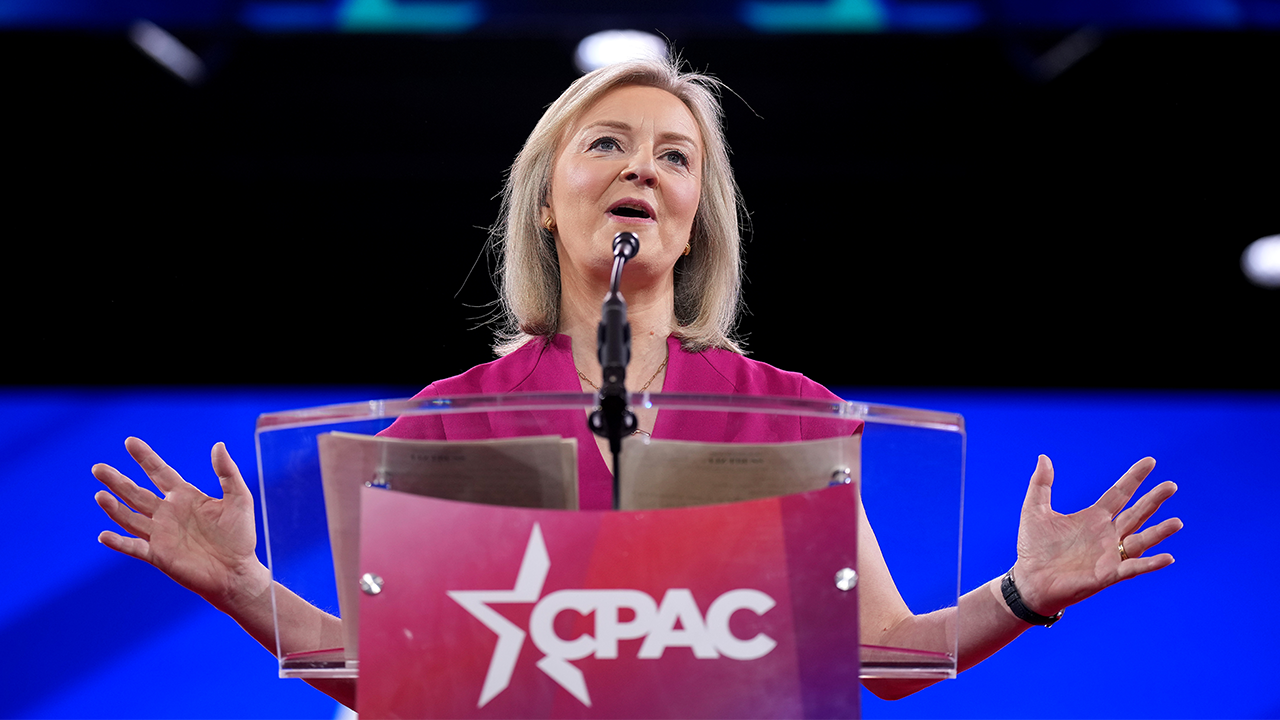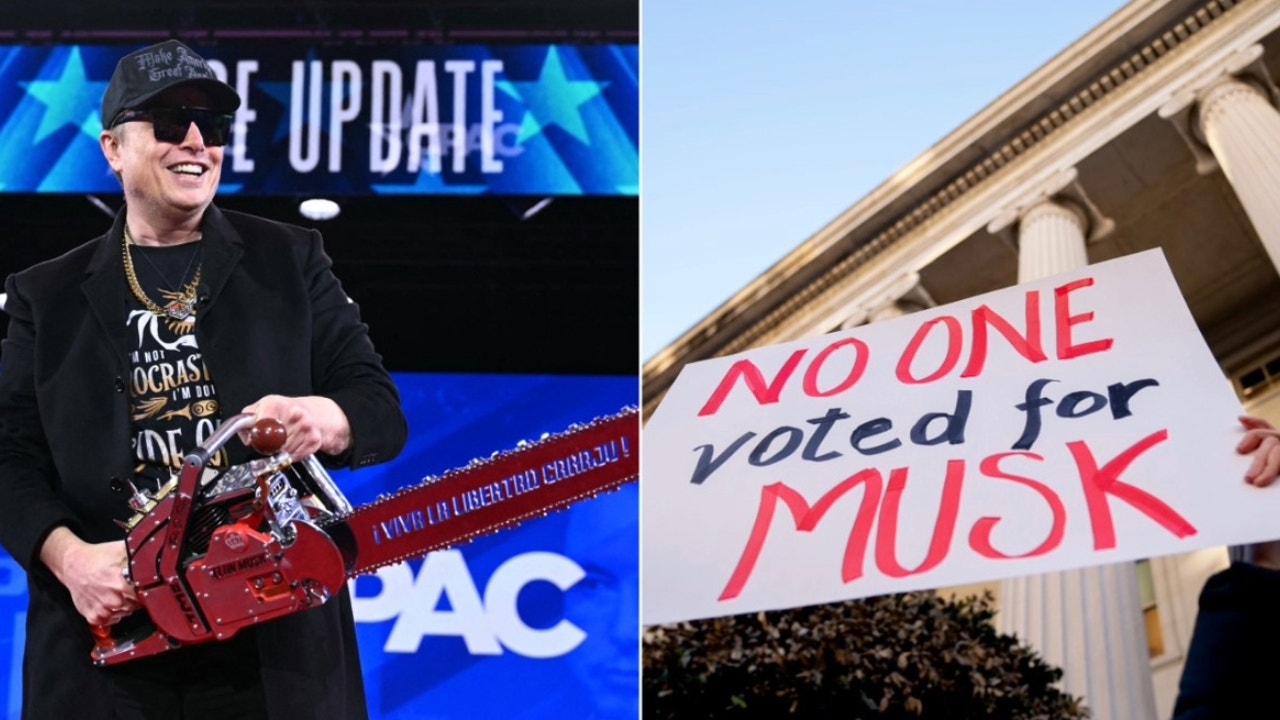“It shouldn’t take longer to approve an [energy] project than it takes to build it,” said National Governors Association Vice Chair Kevin Stitt at Friday’s conference in Washington.
That, the Oklahoma Republican said, is the collective picture painted of all the problems with government bureaucracy at all levels that imperils the U.S.’ ability to stay ahead of China in terms of cyberthreat-prevention and energy dominance.
Permitting reform is one of the most important things to address with a new administration and new state government sessions beginning, the governors collectively expressed.
There was bipartisan consensus at the NGA that America must move responsibly toward a future secure from malign foreign actors in both cybersecurity and energy development.
NJ RESIDENTS HIT WITH DOUBLING BILLS AS LAWMAKERS FUME OVER MURPHY’S ‘ENERGY DISASTER PLAN’
“Permitting reform is one of those issues where both Republicans and Democrats recognize the problem, we largely agree on solutions,” Stitt said, adding it is a national security issue that the U.S. must streamline permitting.
“Our allies need affordable, reliable energy and the US has the resources to provide that,” he said.
Interior Secretary Doug Burgum spoke at length on that matter, saying America is in competition with foreign rivals like Russia, China, Iran and North Korea whether they like it or not.
“It’s key that we win the AI arms race with China,” he said, citing bot-powered attacks that can be much more effective than human hackers.
“They would have the ability to take down the electric grid. They have the ability to disrupt everything that we know in our country. And they wouldn’t have to put a single soldier on the ground, but it could completely disrupt us and our economy. So, winning that AI arms race doesn’t just take software developers, it takes more electricity.”
“We’re in a competition… against other countries that aren’t slowing themselves down with the level of bureaucracy that we have,” Burgum said, citing the threat of cyberattacks from Russia, China, Iran and North Korea.
Burgum and the governors discussed the promise of nuclear energy and new technology that allows for the portability of such operations, where plants that generate power can be placed much closer to where that power is needed.
Stitt remarked that when Pennsylvania Gov. Josh Shapiro issued an order mandating his own government to rule on infrastructure permit applications within two weeks or give the applicant their money back, he didn’t want to get “beat by a Democrat” in that idea so he quickly issued his own order.
HOCHUL DOES APPARENT ABOUT-FACE ON NATURAL GAS AS NYC UTILITY SIGNALS MAJOR RATE HIKES
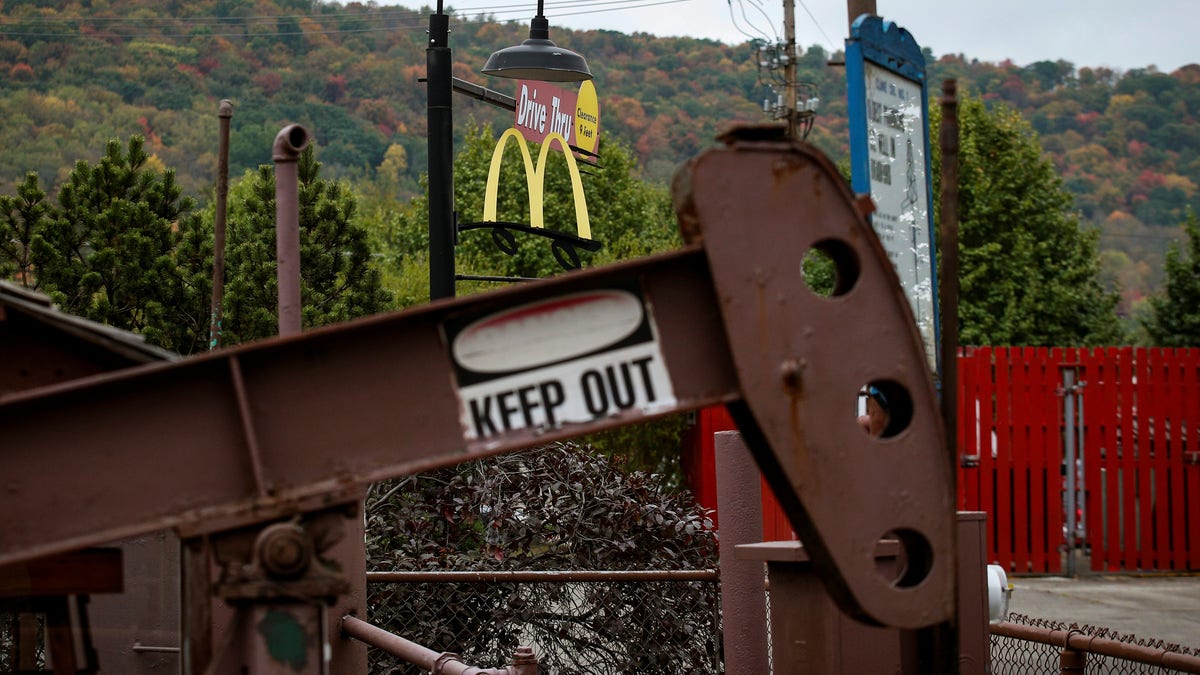
Shapiro also said Pennsylvania conducted an audit of permit applications earlier in his term and found 3,400 – leading him to order there be cataloging going forward.
Despite Bethlehem Steel’s stacks laying dormant 25 years on, and the massive St. Nicholas Breaker coal processor long gone, Pennsylvania remains the nation’s second-largest energy net-exporter – a fact noted by the governor.
The first North American discovery of oil occurred in the mid-1800s in Venango County, and some of the longest-producing wells remain active in Pennsylvania, though the Commonwealth has been far surpassed in that regard by Texas, Alaska and other states.
“We’re proud of our legacy as a national energy leader,” Shapiro said. “We’ve got to get to-market quickly [regarding] energy projects.”
Pennsylvania produced more than 7 trillion cubic feet of natural gas in 2023. But there has been a push-pull effect of former Democratic Gov. Ed Rendell banning fracking on state parkland, Republican Gov. Tom Corbett reversing that, and Shapiro’s Democratic predecessor Tom Wolf then restoring Rendell’s moratorium.
Shapiro indicated Friday he would be taking a more measured approach to responsibly developing the Commonwealth’s resources.
He cited the bipartisan SPEED Act out of Harrisburg, which provides for third-party permitting review while also accelerating the overall process.
Burgum called the work of a governor one of the hardest, but remarked that it is about to “become more fun than it’s ever been” with the accessibility of the Trump administration.
In that regard, South Carolina Gov. Henry McMaster described how cabinet secretaries had shared their own personal contact information following a Friday White House meeting – and that President Donald Trump invited calls as well but did not share his own number.
“I’ve got it, but I’m going to hold onto it,” he joked.


